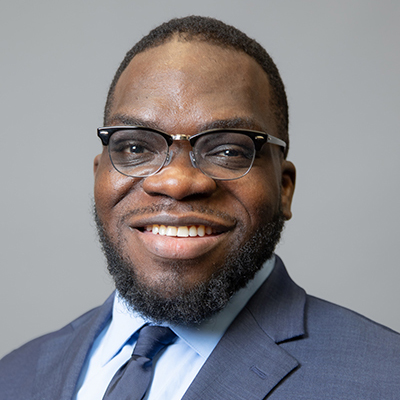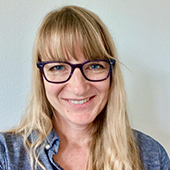Early Childhood Education
Department of Curriculum and Instruction
The options with a report add a research component while the M.Ed. without a Report includes an extra elective course.
The Master’s Program in Early Childhood Education (ECE) focuses on important learning theories for young children and the curriculum that helps develop young learners. Students in this program are prepared to become teachers, teacher educators, professors and future researchers in Early Childhood Education.
ECE offers three master’s degree options:
- Master of Arts (M.A.) with a report
- Master of Education (M.Ed.) with a report
- Master of Education (M.Ed.) with an emphasis on coursework
Total minimum hours: 33 hours with Report; 36 hours without Report
Faculty

Areas of expertise include early childhood education, racial justice and equity in early learning, educational anthropology, video-cued ethnography, immigration and education, impact of social injustices on childhoods, project-based learning led by c...

Interests include early childhood education policy and practice, gender issues in early childhood education, conceptions of children, urban literacy education, diversity, equity and social justice in early childhood and qualitative research.

Accepting new students

Dr. Snaider is an Assistant Professor in the Department of Curriculum and Instruction. Her research lies at the intersection of educational policy and early childhood practice. She conducts comparative case studies to examine how teachers strive to c...
Accepting new students
Master of Education with Coursework
If you will NOT be completing a report must select 9 credit hours of electives (instead of the 6 required for the report) in either
- the ECE program area
- curriculum and instruction or
- outside the department or college
Master of Arts or Master of Education with Report
For the Masters’s degree with report, you must schedule a meeting that includes all tenured/tenure-track faculty within the ECE program area immediately following the completion of 18 hours of course credit and before the subsequent semester. At this meeting, you must make the case as to why you want to pursue a report and the topic of inquiry the student plans to pursue with the report. The faculty will then decide if pursuing a report is appropriate. If faculty determine that you will NOT be able to pursue a report, you will complete an M.Ed. and be required to complete all 36 hours of coursework. If faculty approve the student’s request for a report, the student will complete 27 hours of coursework along with 3 credit hours of report (EDC 398R) and 3 additional credit hours of elective, typically independent study.
Required Areas of Study
You will select 9 credit hours from the following:
- EDC 385G Critical Perspectives on Childhood Education
- EDC 385G Early Childhood Education Programs
- EDC 385G Early Childhood Teacher Education
- EDC 385K Environmental Education for Young Children
- EDC 385G Global, Comparative Early Childhood
- EDC 385G Inquiry in Play
- EDC 385G Parents and Education
- EDC 385G Research in Early Childhood Education
- EDC 385G Social Context of Childhood Education
- EDC 385G Theories of Childhood Education
- EDC 385G Thinking as Social Construction in Childhood
You will select a minimum of 9 credit hours from curriculum and instruction courses within the department as a way to study the topics that are relevant to their work and as approved by their advisor. ECE graduate students can take courses in
- Bilingual/Bicultural Education
- Language and Literacy Studies
- Cultural Studies in Education
- STEM Education
- Learning Technologies
You will select 3 credit hours of Educational Research and Design (EDC 380R).
You will select 6 credit hours outside of Curriculum & Instruction. Early childhood graduate students have taken courses in many programs including
- theater/dance
- human development
- special education
- educational psychology
- anthropology
- sociology
- social work
- Indigenous studies
- Mexican-American studies
- African and African diaspora studies
Types of Courses
Using a sociological lens, this class examines the constructs of the child and childhood through a range of social, political, educational, and economic contexts. Our investigations will include such fields as culture, class, gender, race, sexuality, and so on, and within those fields, we will explores such contexts as the school, classroom, and family. Lastly, we consider how one might research these varying contexts of children and childhood as well as how one might address the range of issues we explore in the context of the early education classroom.
The goal of this course is to assist students in becoming critical scholars of early childhood education research, practice, and curricula. To foster this skill, we read a range of works that question or deconstruct many of the assumptions that are foundational to the field. Furthermore, this course will offers students the opportunity to begin to develop their own critical voice that questions not only the ever-present assumptions that exist within early childhood education but also their own beliefs, theories, and ideas about working with young children, their families, and the communities in which they live and work.
The purpose of this class is to look globally and locally at the lives of young children. What does it mean to go to school in India, Italy or Japan? How are young children treated, perceived or disciplined differently depending on where they live? Using work from early childhood scholars within Anthropology, Child Development, Psychology, Sociology and Early Childood Education, this class centers on international, racial, cultural and indigenous perspectives on early childhood as well as the types of fieldwork and comparative inquiry that international research requires. The goal of this class is to deepen student knowledge about global and comparative research in the field of early childhood and to prepare a research proposal for a comparative and/or international project with or about young children.
The purpose of this class is to look at how a range of important theorists have tried to explain childhood and early learning. Although there are many traditional and contemporary theorists of early childhood education to choose from, this class focuses on a mix of theorists from the fields of anthropology, psychology, philosophy, education and child development to look at particular ways in which children can and do experience agency, power and diversity in school. We will also draw from critical pedagogy as well as post-structural theory and nueroscience to understand new directions in how children experience early learning. In addition to a diverse set of fields, we will also draw from lesser known work of early women in the U.S. concerned with early chldhood education and whose ideas made an impact on how we collectively see children today in the U.S. The goal of this class is to deepen student knowledge about early childhood educational theory and theory’s connection to how agency, power and diversity are conceptualized in early childhood education.
The purpose of this course is to explore a range of early childhood education programs and practices. Through our analysis of these components of early childhood education, we examine the philosophical, theoretical, historical, and empirical bases for such approaches to the field. While we will cover specific approaches to early childhood education such as the Montessori approach and programs such as Head Start, we will also question how these various models of ECE define their role within the education of the young child as well as define the role of the child, teacher, and family.
This course explores the central issues and theoretical orientations of curriculum theory and practice in public early childhood and elementary school programs in the U.S. To do this, we examine these issues from the perspective of pre-k and K teachers and teacher educators and to theorize the ways in which these issues are likely to impact their daily work with young children and preservice teachers. Moreover, this course is designed to help students begin to develop their own answers to such questions: what should be taught in pre-k and K and why, or what kinds of educational activities are the most worthwhile for young children?
This course centers on the parent/teacher/school relationship and how inequitable treatment affects parent “involvement”, student learning and academic success. This course looks at parents and education through the eyes of teachers, parents and researchers all engaged in understanding the relationship between families and schooling in the U.S. We will cover racial, class-based, linguistic, cultural and global perspectives on the relationship of parents and education and use multiple theoretical frameworks to both understand and challenge current approaches towards parental involvement in school.
The purpose of this course is to provide theoretical and empirical bases for understanding the play of young children. The roots of human cognition, motivation, and communication will be explored through the ideas of Vygotsky, Piaget, Erikson, Bateson, and others. The role of play in human development will be elaborated through a look at research on patterns and processes of play. Classroom presentations will be extended through an assignment involving observation of young children’s play.
This course is designed to introduce students to the skills needed to create an effective program that is appropriate for working with young children in early learning environments. To do that, the course begins by discussing the basic components of a curriculum, which is at the heart of program development. Next, it provide an in-depth investigation into how one formulates and implements a developmentally appropriate curriculum that is rooted in the principles of how children learn and the principles of intentional teaching. Furthermore, it discusses the impact of various contextual factors on program development such as the role of context, including state, district, and program policies, the teacher, the child and her family, instructional strategies, assessment, play, developmental domains, and academic content. By the end of this course, students will have a foundational understanding of how an early childhood educator goes about formulating, implementing, and regulating a developmentally appropriate program for young children.
This course brings a cross-disciplinary approach to environmental education with young children; bringing environmental education into conversation with work in children’s geographies, environmental science, the environmental humanities and Indigenous studies. This approach is intended to foreground ‘the environment’ and ‘nature’ as contested terms that need to be contextualized, such as in ways that consider their historical, economic, social, material, and cultural constructions. We will also situate understandings of the ‘environment’ and ‘nature’ within current times of planetary damage and environmental injustices. The course provides opportunities to explore possibilities for creative, ethical, decolonial, place-attuned and justice-oriented curricular and pedagogical possibilities in environmental education with young children.
Important Reminders
- No more than 3 upper-division undergraduate courses are allowed.
- No more than 6 hours may be taken credit/no credit.
- No more than 3 hours of independent study are allowed.
Additional Resources
Program Starts: Fall
Deadline to Apply:
December 31
Credit Hours Required:
M.A.: 33 hours
M.Ed.: 30 hours
Schedule: Flexible
Program Location: On Campus
GRE Required? No

Program Coordinator
Nathaniel Bryan

Program Advisor
Jennifer K. Adair

Graduate Admissions Coordinator
Stephen Flynn
Let us know what your academic interests are within the College of Education and we’ll be in touch.


